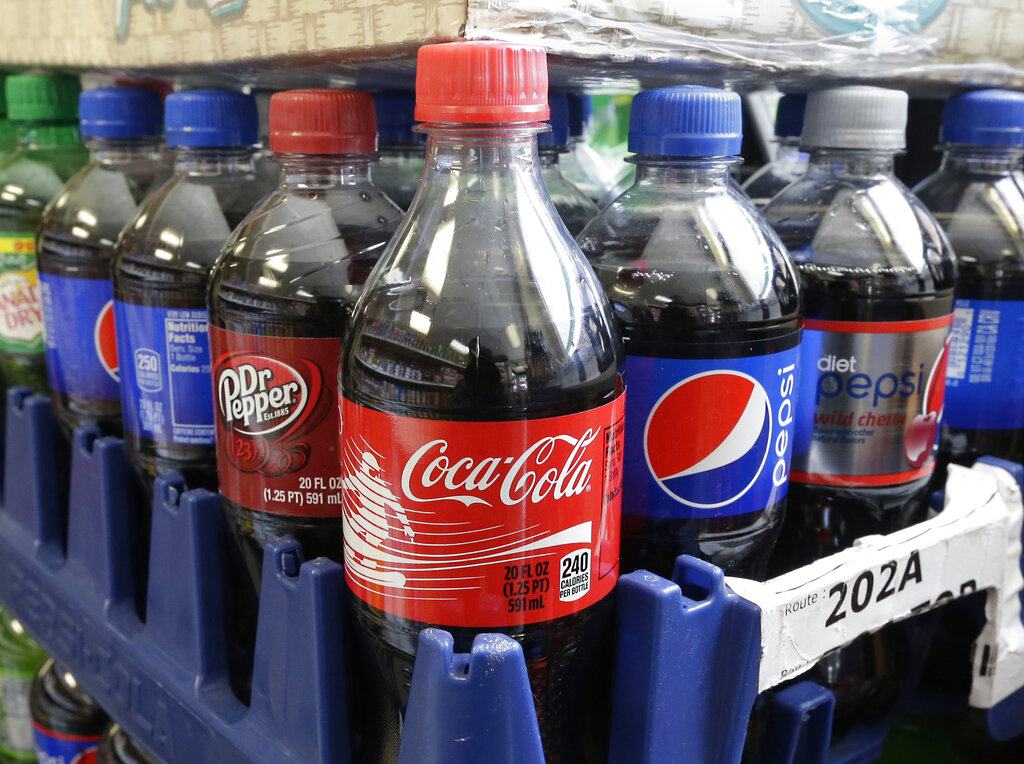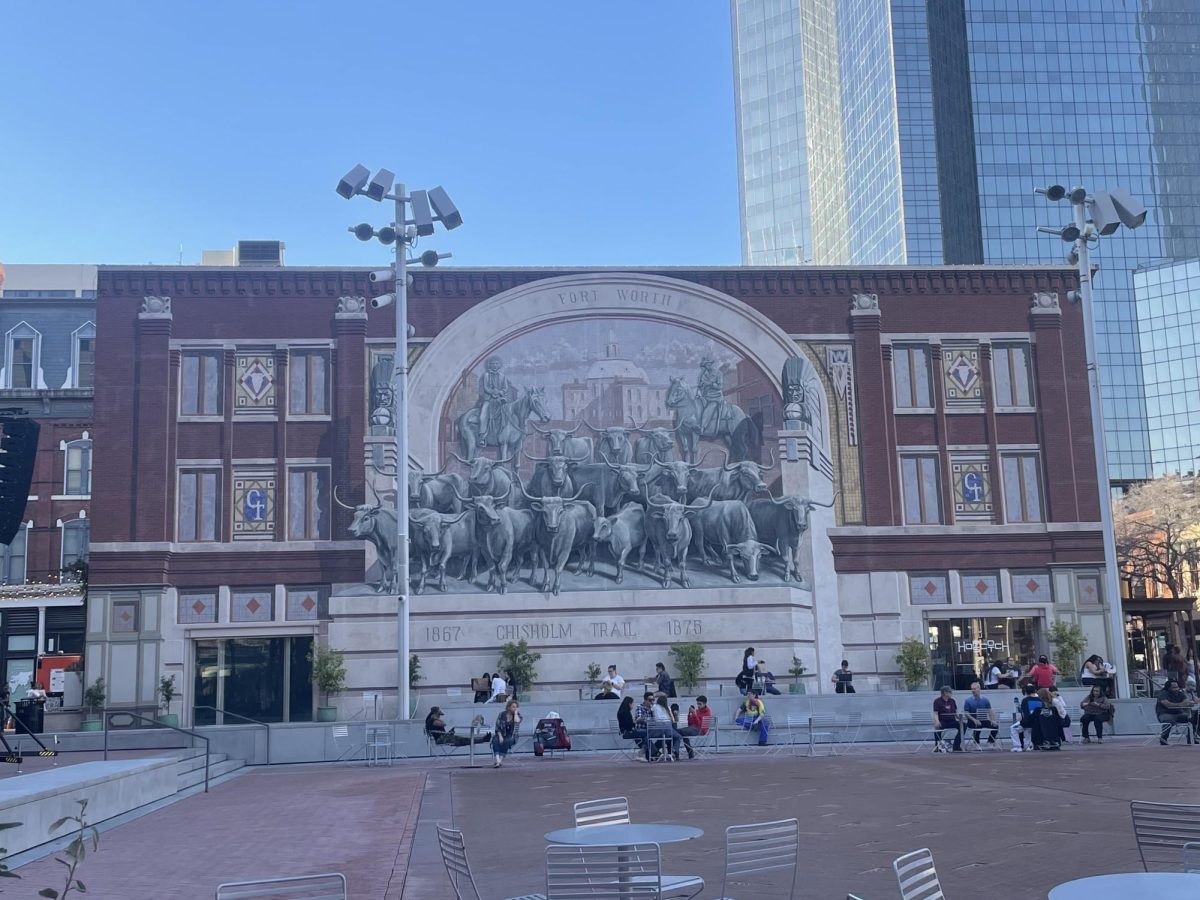Rhonica Stuart said she is waiting for gasoline prices to go down before she’ll start filling up her car more often.
Before Hurricane Harvey tore through the Gulf Coast and shut down 22 percent of total U.S. refining capacity, Stuart said gas prices weren’t on her mind. Now, she says, prices change the way she thinks about driving.
“I think we all became more aware when there was the gas shortage,” Stuart said. ” And then when you see the prices go up, I really reconsider if I’m going to take a longer trip.”
Stuart fills her car with premium gasoline, which hovers at about $2.85 per gallon. The price has dropped by increments each week, but it’s still about 20 cents above its price before Harvey hit, according to AAA.
Stuart is waiting for the price to drop to its pre-Harvey levels.
“That’s me hedging my bets,” she said, laughing. “I’m not going to pay more.”
In Fort Worth, prices of regular gasoline are about 18 cents above their levels before the hurricane, though they have also been steadily decreasing each week, according to AAA.

Supply and demand
“It’s normal when a hurricane hits the coast for these gas spikes to happen,” said Jenna Delaney, a senior oil analyst for S&P Global Platts.
When Hurricane Harvey strained the supply of refined products like gasoline, demand for gasoline shot up and prices naturally followed, she said.
Exorbitantly high prices for fuel or other necessities are illegal and Texas has anti-gouging laws in place to protect consumers, according to the attorney general’s office. Texas Attorney General Ken Paxton said his office would prosecute price gougers after his office’s Consumer Protection Division received more than 500 complaints about excessive prices.
Delaney said a decrease in supply of refined products was the primary reason for temporary gas shortages and longer lines at gas pumps over Labor Day Weekend.
Lineup at the pumps
Consumers also played a significant role in the temporary gas shortage, analyst John-Laurent Tronche wrote in an email. Tronche manages the crude oil team in the Americas at S&P Global Platts.
“Emotions, of course, play a role in the process,” Tronche wrote. “After Harvey, many people rushed to buy gasoline in Dallas-Fort Worth (myself included), and this caused temporary shortages–but there probably didn’t have to be shortages if people had kept their cool and only bought what they needed.”
A manager at 7-Eleven on Forest Park Boulevard said his gas station ran out of gas the Thursday before Labor Day.
“Wednesday I checked,” said Manu Chendi, who’s been managing the gas station for eight years. “We have a three-day stock but it was finished like in a day, less than a day.”
On average, 275 customers pump gas at Chendi’s station. That number rose to 465 on Wednesday and 650 on Thursday. Trucks brought more supply Saturday, but at that point, customers had already filled up, he said. Chendi said business didn’t go back to normal until a week later.
Ken Morgan, director of the TCU Energy Institute, said gas “panic” arose in part from consumers’ misunderstanding how Fort Worth gets its refined products.
“Their panic was, Houston’s going down, my God I got to go fill up,” Morgan said. “Well it’s because they don’t know, the refineries that fill the metroplex are closer right up here in Oklahoma.”
“[Refined product] went from a refinery, through the pipelines, stored in 20 different places around the metroplex,” Morgan said. “And trucks bring it in to us, take it in and out. If our only hope was Houston, that price would have shot way up.”
U.S. Gulf Coast refineries ran at 73 percent capacity in the week ending Sept. 15, up 12.3 percent from the previous week but remaining at the lowest level since Sept. 26, 2008, according to the Energy Information Association.
What higher prices mean for consumers
While the gas shortage was temporary, the higher prices continue to impact consumers in the Fort Worth area.

Fort Worth resident Pasma Alaa said higher gas prices have changed the way her family drives around. Before, she would take her kids on outings, such as a drive to a park, about three times per week; but now, it’s just once a week, she said.
A trip to the grocery store requires a tighter budget as well.
“Yeah, that has [an] effect because I’m trying to save more money for gas,” she said. “Before I go, I’m trying to see how many miles, how long the distance. Now I’m trying to count everything. It’s not like before.”
Danielle Woodall and her husband both commute to work, which she said is now causing more of a strain on their monthly gas budget than it did before Harvey.
“We spend about $100 a week more,” Woodall said.
To save money, Woodall takes her family to closer parks within walking distance and has switched from premium to regular gasoline.
“We know it’s– we hope at least– it’s going to go down again,” she said. “And then we come back to be able to go wherever we want and not have to think about staying close to home or on the way for our jobs.”
A change in shopping and driving habits is normal during a dramatic change in gas prices, according to a study from JP Morgan Chase in 2015.
Using data from 57 million anonymized debit or credit card account holders, JP Morgan Chase found that when gas prices are low, people spend more on other goods.
The study found that for every dollar saved from lower gas prices, consumers spent 80 cents on other goods and services, 20 cents of which were spent at restaurants.

Low-income earners in the study experienced the greatest increase in their purchasing power from a fall in gas prices.
Morgan said higher gas prices would also cause the greatest impact for laborers and low-income earners who have long commutes to work.
“Let’s say that you depend on [gasoline] because you’re a construction worker. And you got to drive from here to North Dallas because that’s where the new homes are right now,” he said.
Morgan said that working people may have lost $50 to $60 a week to higher gas prices, making it harder for them to afford such necessities as groceries and school supplies.
Despite the higher gas prices, some Fort Worth residents said they didn’t change how they drove or how often they purchased gas.
Keith Hill said he hasn’t paid much attention to rising gas prices.
“I drive a gas guzzler anyway, I drive a truck,” Hill said. “Really I don’t even think about it.”
Meredith Miner said she remembers when gas was priced at $4 a gallon.
Comparing that to today’s prices, Miner said she’s not changing her driving habits.
“I still have my duties and things that we’ve got to do so I can’t change those up,” Miner said. “My demand is the same.”
A historical perspective
Like Miner, Morgan put this year’s price uptick into perspective, recalling the oil embargo of 1973, when the U.S. supported Israel in the Yom Kippur War, prompting the Organization of Arab Petroleum Exporting Countries to place an embargo on all oil imports to the United States.
“[In the 70s], we had lines out here that went for so long for so many days and weeks,” Morgan said. “And that was just politics, wasn’t even a storm, wasn’t catastrophic.”

Prices soared from $2.90 for a barrel of oil before the embargo to $11.65 for a barrel in January 1974.
Inflation tangled with the energy crisis of 1978, making all products more expensive and making the dollar worth less than it was before the embargo, Morgan said.
Delaney said inflation isn’t a concern after Harvey, pointing to geopolitical tensions such as the 1973 oil embargo as a greater catalyst for long-term effects.
“You don’t normally see a long-term impact of higher gasoline prices just because of a hurricane,” Delaney said.
Instead, natural disasters lead to short-term impacts, which, as Morgan said, could be as small as oranges increasing in price after Hurricane Irma hit Florida.
Short-term impact on other forms of energy
Harvey did, however, impact other parts of the energy sector, both domestically and globally.
Other industries that use crude oil saw a spike in prices. Jet fuel prices went up 42 cents, a high not seen since Hurricane Ike struck in 2008, S&P Global Platts editor Daron Jones said in a Platts news release.
Increasing energy independence
While the U.S. produces petroleum in 141 refineries, it also imports petroleum from 70 countries, including OPEC countries, Persian Gulf countries, Canada, Saudi Arabia, Venezuela, Mexico and Colombia. In 2016, the U.S. exported petroleum primarily to Mexico, Canada, the Netherlands, Brazil and Japan.
Main Petroleum Imports to U.S.Venngage Infographics
As the U.S. produces more of its own oil, it approaches a balance of its imports and exports, otherwise known as energy independence, Morgan said.
“Energy independence means I have enough,” he said. “I’m balancing my energy budget.”
In 2016, the U.S. imported a quarter of its petroleum, according to the Energy Information Administration.
Because the U.S. produces and exports more of its own oil today, the economy isn’t easily crippled by a natural disaster like Hurricane Harvey, and inflation stays under control, Morgan said.
Meanwhile, gas prices in Fort Worth are steadily climbing back down to their pre-Harvey levels.
“This country has its own energy base locked in, and that’s a good thing,” Morgan said. “It’s not $5 for a gallon of gasoline, we’re not standing in lines this week, we’re not hoping that they get over being mad somewhere else in the world.”



